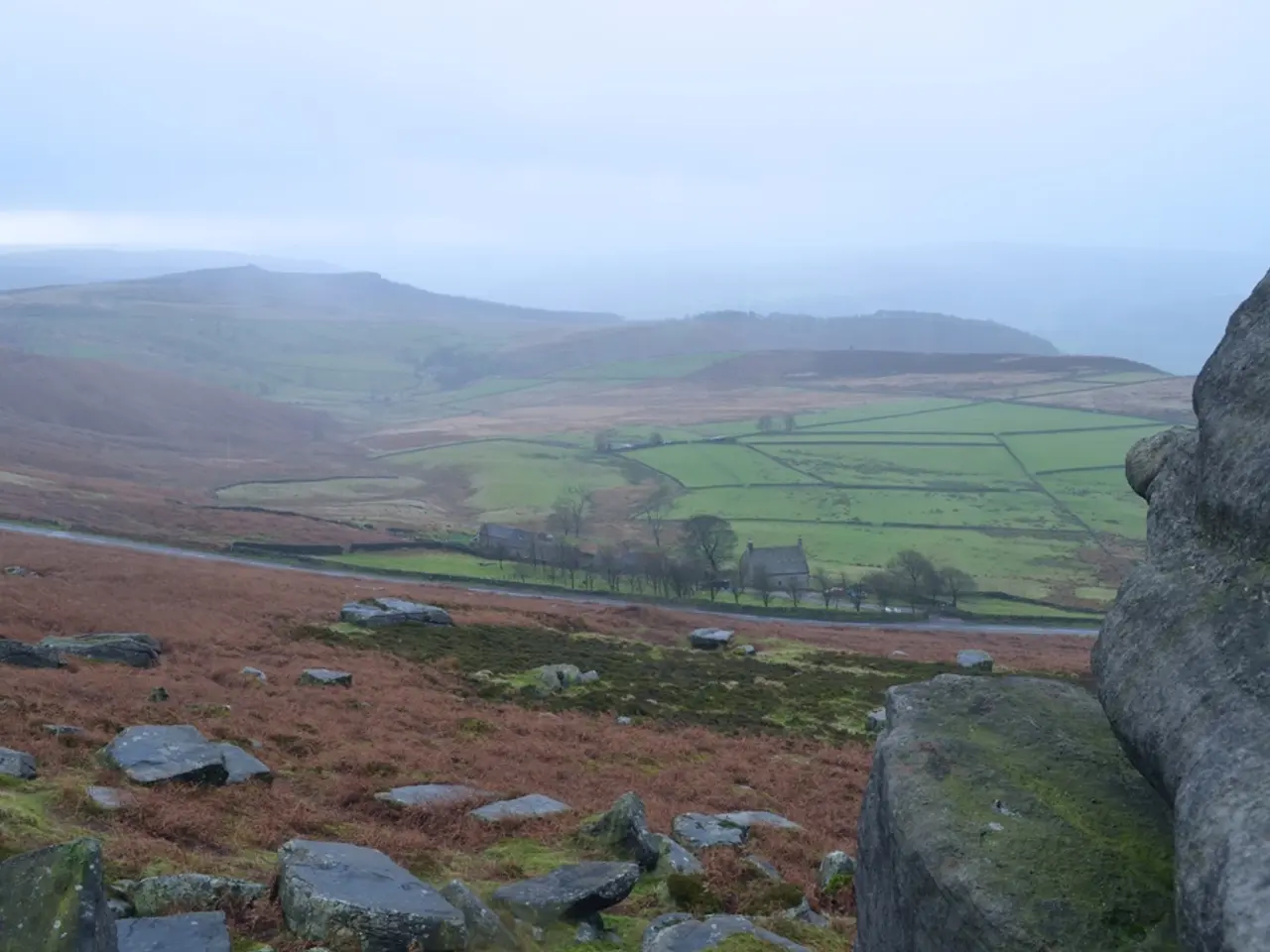Coal Exhaustion: Unveiling the Emergence of New Landscapes in the East - Transformation in the East: Coal's eliminated reign and the emerging changes
As Germany moves towards its coal phase-out target of 2038, the Lausitz (Lusatia) region is bracing for a significant transformation. This change is marked by plans for energy transition, nature restoration, economic diversification, and community engagement.
**Energy Transition and Green Infrastructure**
The region, known for its coal-based energy, is set to shift towards renewable sources such as wind and solar power. This transition aligns with broader sustainability strategies, focusing on climate-neutral energy supplies and reduced resource consumption.
**Nature and Landscape Restoration**
Large-scale reclamation projects aim to restore ecosystems, create lakes, and enhance biodiversity. These efforts will lead to the development of the "Lausitzer Seenland" or Lusatian Lakeland, offering recreational and tourism potential.
**Economic Diversification**
The transformation includes plans for new industries such as hydrogen production, advanced manufacturing, and digital economy hubs. These initiatives aim to provide alternative employment and foster innovation in post-mining communities.
**Community and Policy Engagement**
Stakeholders from politics, business, and civil society are actively involved in shaping the transition. This collaboration is crucial to address social impacts and ensure inclusive development.
**Potential Outcomes**
If the shift to new industries succeeds, it could generate jobs and investment, reducing regional unemployment and improving quality of life. Successful restoration could lead to significant improvements in air and water quality, carbon sequestration, and biodiversity. The creation of lakes and nature reserves has the potential to attract tourists, supporting local businesses and services.
However, transition processes may face resistance or difficulties, such as job losses in the coal sector, requiring comprehensive retraining and social support.
**Ongoing Considerations**
The Lausitz transformation process is closely monitored and adapted by regional stakeholders, with a focus on balancing economic, environmental, and social outcomes. The success of this transition will depend on continued collaboration, investment, and adaptive management.
Model projects like the Senftenberger See, created by flooding an open-cast mine, have shown mixed results, with some ecological concerns remaining. It's important to note that the power plants in Jänschwalde, Schwarze Pumpe, Boxberg, and Lippendorf emit hundreds of millions of tons of carbon dioxide annually, and open-cast mining in the Lausitz region has swallowed up hundreds of settlements and systematically destroyed the environment.
As the region moves towards a post-coal future, the challenges and opportunities are vast. The success of this transition will be a testament to the resilience and adaptability of the Lausitz community.
- The Community is keen on playing a significant role in shaping the region's policy, with Small and medium-sized undertakings contributing to the discussions.
- Science, particularly environmental science, will play a crucial part in ensuring the success of the transition towards renewable energy sources.
- Climate-change mitigation strategies are at the forefront of the energy transition plans, with a focus on reducing carbon emissions from manufacturing industries.
- The region's transformation also includes a focus on the adoption of sustainable-living practices in lifestyle, fashion-and-beauty, food-and-drink, and home-and-garden sectors.
- Personal-finance institutions are collaborating to offer wealth-management solutions that support the transition, such as green investments and budgeting for energy-efficient products.
- The home-improvement industry is expected to witness growth due to the increased demand for energy-efficient appliances and insulation materials.
- The Lausitz region's transition towards renewable energy and sustainable living is also expected to have positive impacts on global cuisines, promoting plant-based diets and locally-sourced ingredients.
- Gardening and sustainable-living initiatives are being promoted to inspire community members to adopt eco-friendly practices and reduce their carbon footprint.
- Budgeting tools and resources are being made available to help households manage their finances, particularly in relation to energy bills and eco-friendly renovation costs.
- Travel companies are offering adventure travel packages that highlight the region's natural beauty and eco-tourism opportunities, promoting sustainable tourism.
- Electric vehicles are an integral part of the region's plans for reducing carbon emissions, with car-maintenance services being trained to handle the new technology.
- Education-and-self-development programs are being introduced to equip the community with the skills necessary for career-development in the renewable-energy sector and other emerging industries.
- Sports clubs and organizations are adopting sustainable-living practices, with initiatives like using renewable energy for facilities, offering plant-based food options at events, and promoting eco-friendly transportation methods.
- Football teams and leagues, such as the Champions League, European leagues, and Premier League, are embracing sustainability efforts and promoting environmental awareness among fans.
- Laliga, Spain's top football league, is also taking steps towards sustainability, with teams adopting green initiatives and promoting responsible environmental practices.
- Sustainable-living goals are being set by the community to ensure long-term progress and the continuous development of eco-friendly practices.
- Skills training programs are being offered to the workforce to prepare them for new jobs in the renewable-energy sector and other emerging industries.
- Sports and adventure travel, along with cultural travel, are expected to become popular options for visitors who want to experience the region's new eco-friendly offerings.
- Job-search platforms and services are being adapted to help the community find employment opportunities in the region's growing green economy.




